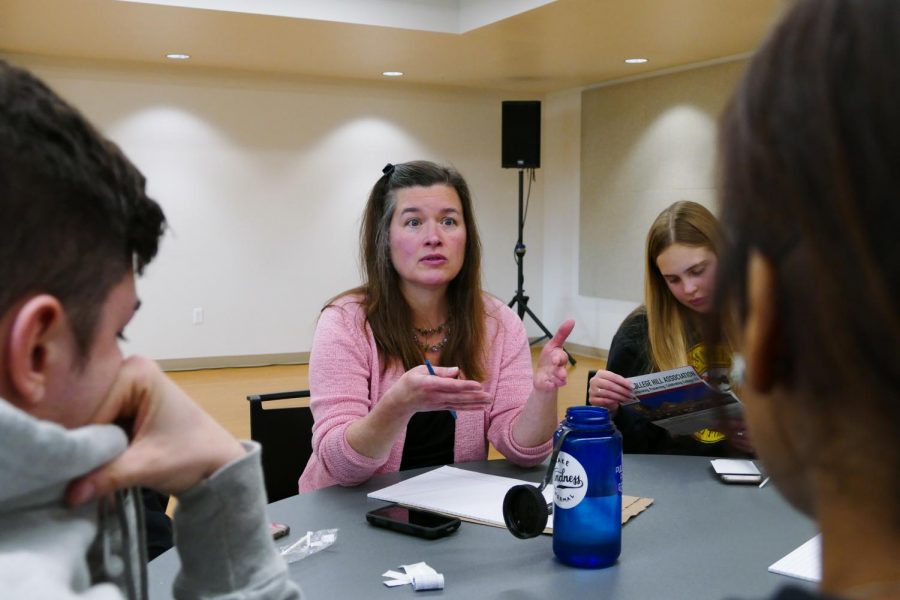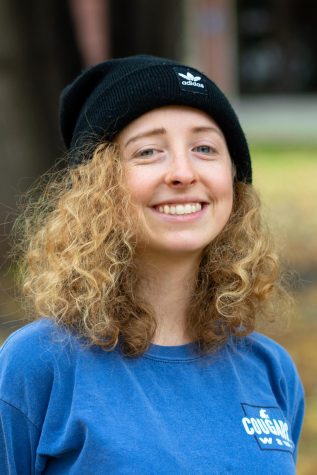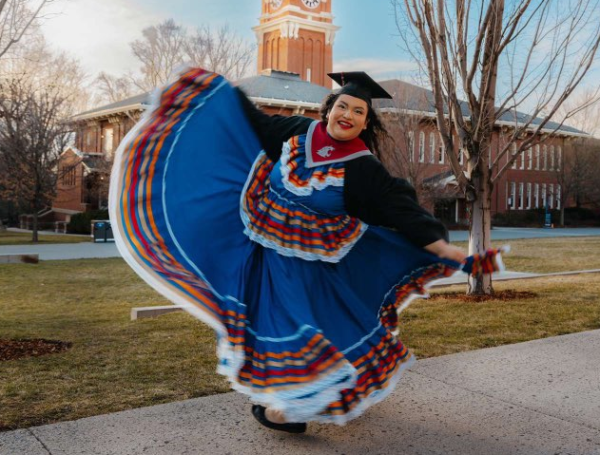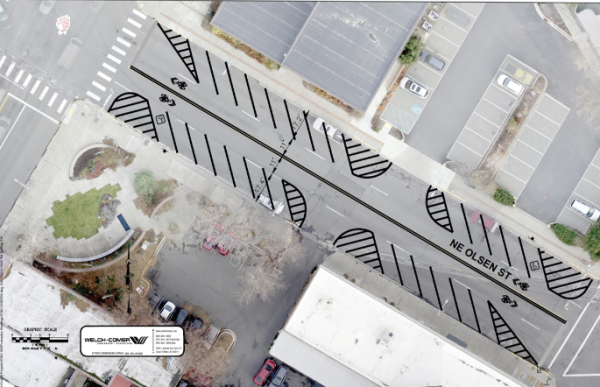Workshop highlights green living
Association must plan to offset loss of green spaces, chair says
STEPHEN MURNANE | THE DAILY EVERGREEN
Allison Munch-Rotolo, College Hill Association chair, discusses possible plans for keeping the College Hill Association alive and functioning in the future with a larger population of student members.
March 25, 2019
The College Hill Association (CHA) hosted a workshop in partnership with sustainability groups in the community.
CHA chair Allison Munch-Rotolo said the workshop, “Branching Out,” was created to focus on ways to improve College Hill and make it more sustainable.
“The mission of College Hill Association is improving the quality of life for the neighborhood, and for us. The environment and sustainability are very important,” Munch-Rotolo said.
She said CHA created the event to speak about community awareness regarding sustainable initiatives and how they could meet student needs. Munch-Rotolo said as the neighborhood becomes more urban, the association needs to consciously plan how to compensate for the green spaces that are lost.
Representatives from four groups presented their respective topics about sustainable living. After, there was an open discussion between presenters and workshop attendees.
Melanie Kirby, a graduate student in the WSU entomology department, spoke about biodiversity and the college’s pollinator project. She said bees have been impacted in negative ways from climate change and pest spray use, but biodiversity can help bee colonies survive.
Alec Solemslie, a junior majoring in forestry, said the loss of trees in the U.S. has contributed to lost culture. He said urban forestry has been shown to produce revenue through its protection of the environment.
Nina Ashmead, a horticulturist for Lawson Gardens, and Fern McLeod, Pullman park maintainer, said the trees in College Hill have been damaged because of vandalism and a lack of tending to them.
Naomi Wallace, a neuroscience graduate student, led a discussion about climate change and sustainable living.
Munch-Rotolo then spoke about neighborhood planning. At the workshop, CHA heard from students about their ideas to improve the neighborhood.
Students suggested creating a student-governed club that focuses on CHA and having tools that can be rented by residents on College Hill like gardening tools and shovels.
Munch-Rotolo said Branching Out wanted to include students in the conversation because they are the largest demographic on College Hill. She said CHA wants more student involvement to sustain the group.
“This association may cease to exist,” Munch-Rotolo said. “We’re hoping to find out if there are people interested in carrying this work forward … and hear ideas for improvement.”
Sheila O’Rourke, a College Hill resident since 1974, said young people are vital for the generations of students that come after them.
“You want it to be the best it can be for you and the people who come after you,” O’Rourke said.






















